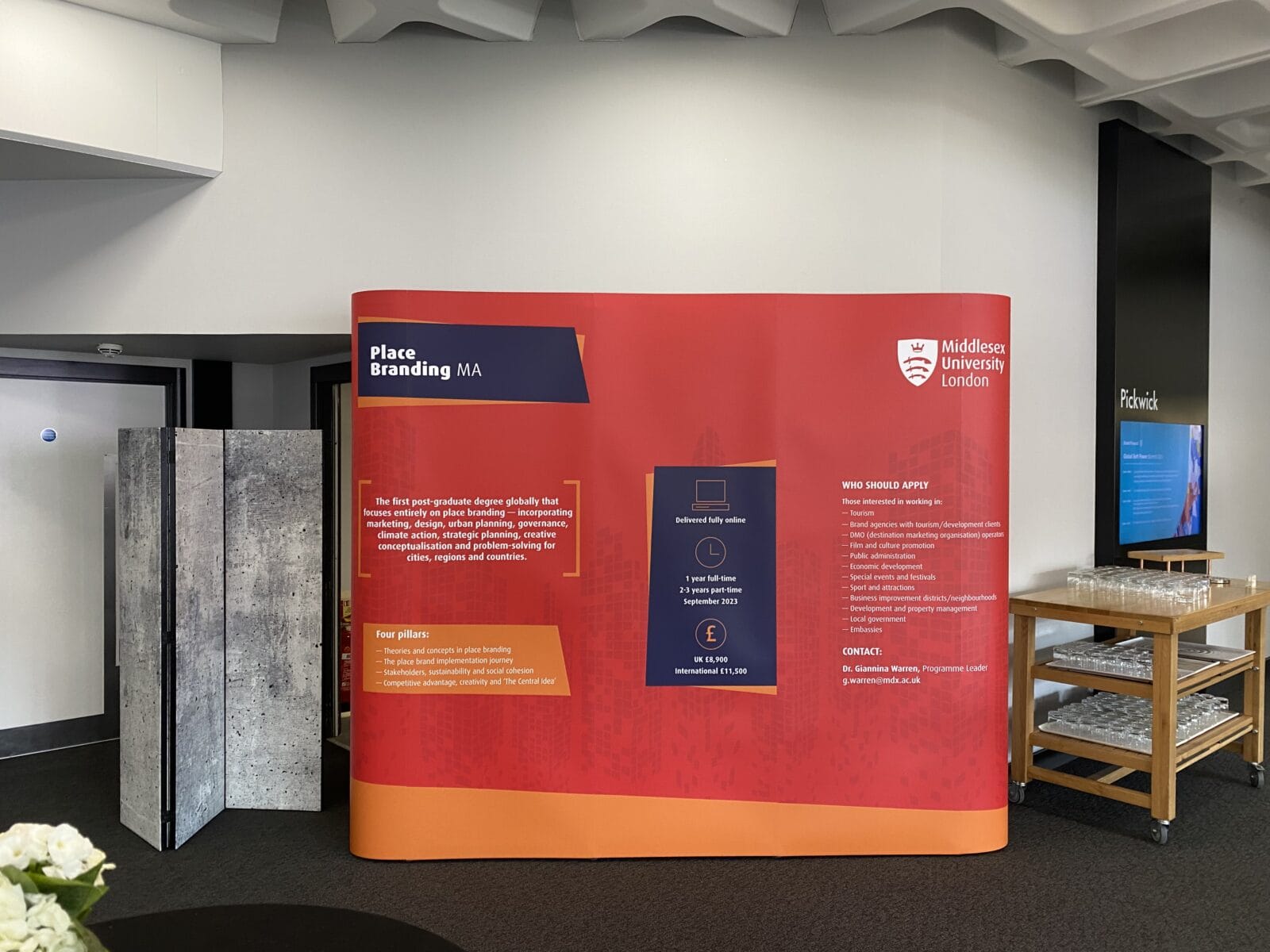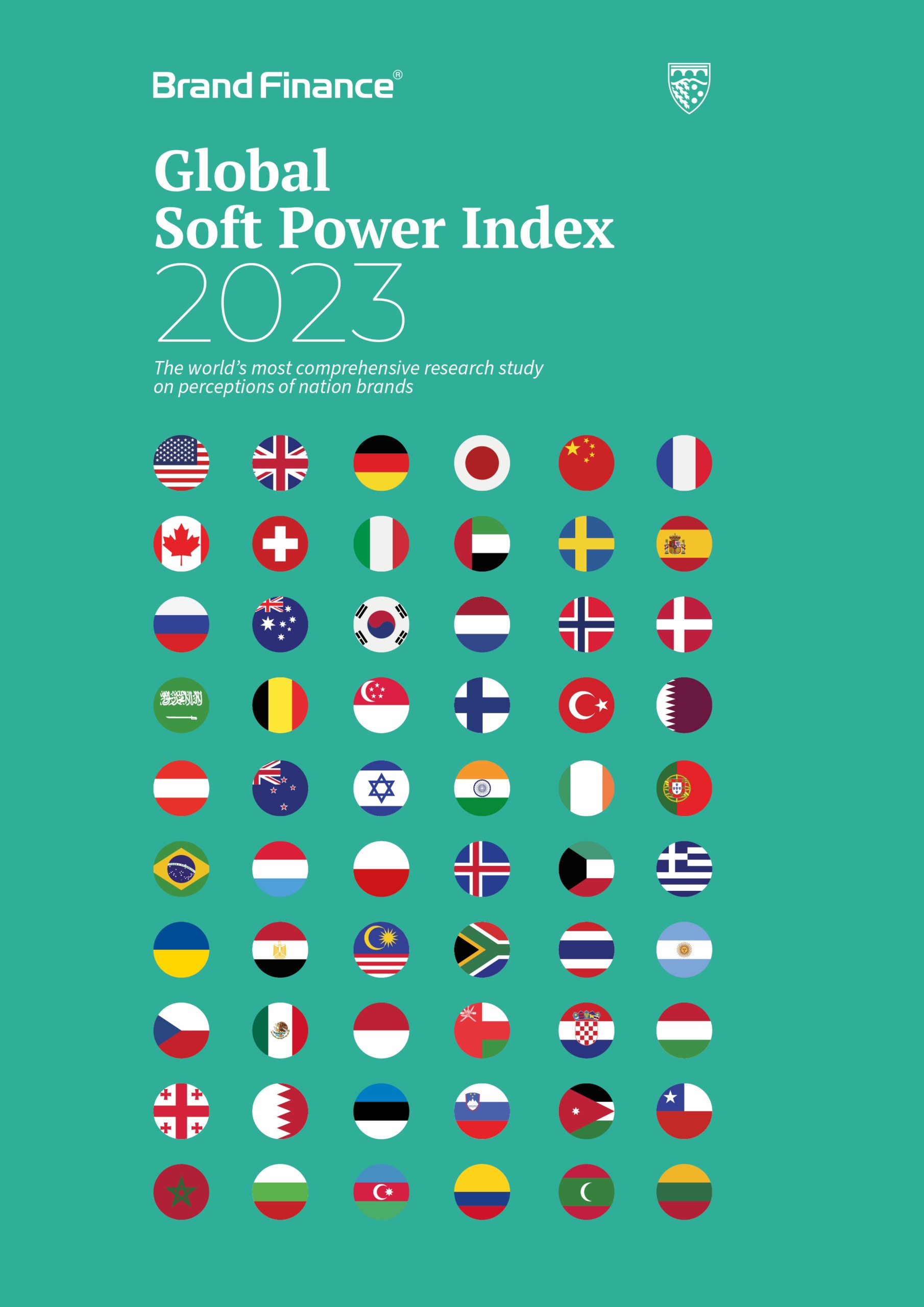This article was originally published in the Global Soft Power Index 2023.

Soft Power has risen to prominence across the international landscape as governments understand that their ability to consistently attract tourists, inward investment, retain talent, and enjoy a positive reputation among both internal and external audiences relies on their capacity to shift perceptions through strategic narrative, story-telling and communicative action, rather than through economic or militaristic might.
In the post-pandemic era, cities, regions, and countries are having to cope with increased migration, climate action mitigation and sustainability goals, shifting work patterns, and increased tourism competition. This has brought the practice and profession of 'place branding' to the fore, as places attempt to position themselves favourably in the hearts and minds of target audiences in pursuit of sustainable economic, social, and cultural prosperity goals. As such, the need for trained personnel who understand the nuances of place branding strategies and implementation is growing exponentially, and governments are having to significantly ramp up their capacity in marketing, communications, branding, tourism, economic development, and resident engagement.
The interdisciplinary and professional field of place branding is in its nascent stages but is experiencing pioneering growth as it carves out new territory, especially as cities and countries prioritise their branding efforts as a way to regain economic and cultural viability and liveability under new norms. What this means is that as places have emerged as strategic sites of cultural, institutional, and financial competition, a heightened degree of power and influence has been afforded to the ‘transnational class’ whose job it is to promote them. Despite the highly influential and impactful nature of this profession, the work remains largely invisible.
Further, the public sector has remained consistently slow in catching up to norms embraced in the private corporate sphere that recognises the central, strategic, and necessary role that the branding and marketing function plays in achieving organisational goals. Too often, the role of marketers is overlooked in governmental policy processes, viewing the promotional function as an add-on, a 'nice to have', or an expensive cost centre brought in too late in the process to properly impact on outcomes. As a former practitioner in the field, and in my academic research, I have witnessed too many scenarios where place marketers are undermined, misunderstood, or worse, misaligned in their efforts to interject in political and policy briefings related to broader economic, cultural, social or sustainability goals. Despite the tacit understanding by practitioners that the work is highly strategic, driven by consumer research, and measurable, far too often their expertise is considered solely in relation to the design and distribution of marketing collateral, publicity materials, or social media outreach – and within budgets and timeframes that diminish their ability to achieve lasting results.

Part of the problem is that the work of place branding is not yet professionalised. Practitioners come to the career from a variety of backgrounds, and there does not yet exist a clear educational pathway to achieve the knowledge, skills and credentials required to do the job. While tourism marketing is a long-established practice, with existing opportunities to improve skills or acquire credentials and degrees, the discipline of place branding requires a broader, more holistic understanding of the nuances of a city, country, or region. The work is politically contingent, but also transcends political cycles. It is largely driven by economic considerations, but judged on social value. It leverages transferable marketing skills in data analysis, strategic planning, and campaign implementation, but operates in a broader sphere where neither the product nor the audience can be closely defined. It requires the ability to work with a vast array of brand touchpoints across a never-ending landscape.
Place branding offers a challenging stakeholder environment and demands strong leadership from practitioners versed not only in marketing, branding, communications, and competitive strategy, but who also possess extraordinary relationship management skills, and an ability to straddle the public/private divide. Further, the work, by its nature being so contingent on the dynamic, ever-changing, 360-degree nature of place, is neither completely neutral, objective, or rational – and in fact relies heavily on the personal and subjective investment of social and cultural capital, as well as emotional performances of legitimacy to do the job. In short, place marketers must bring their 'whole selves' to their work and are constantly fighting for legitimacy within the value chains. in which they operate. To do so they must leverage strong social and professional networks to maintain constant visibility, and demonstrate an ongoing commitment to furthering their knowledge, skills and expertise so as to be seen as credible in a fast-paced and ever-changing industry.
In addition to the softer diplomatic skills required to navigate a constantly changing economic and stakeholder environment and potentially tricky political climate, place marketers must also possess a broad spectrum of ‘hard’ skills in public relations, marketing, advertising, and brand strategy, maintain up-to-date skills in media relations, metric-driven campaign measurement techniques, strategic communications planning, visual and video graphic story-telling, and most recently, social and digital interactive platforms. The speed and accessibility of ever-changing 24/7 media platforms has also necessitated an ‘always on’ attitude among practitioners who feel they can never fully step away from their work. This leads promotional actors to pursue increasingly complicated means of measuring their outputs and outcomes, in an attempt to quantify their impact on citizen engagement and the overall success of the place's reputation at home and abroad. Until now, options for practitioners looking to advance their knowledge and skills were limited. Further, whilst academic enquiry into the discipline has advanced over the last decade, the worlds of academia and industry rarely collide.
Middlesex University London seeks to redress this gap, by offering the world's first practical MA in Place Branding. It will combine theory with practice, providing an online, comprehensive, high-flex educational solution for early-career professionals looking to elevate their careers in cities, regions, and countries around the world. Students will benefit from industry and institutional partnerships across the sector that will offer guest lectures, insider information on case histories and client challenges, innovative proprietary products and frameworks for place brand research and strategy, as well as offering internship pathways and networking opportunities. The course will be taught by leading practitioners and academic experts in the field.

This is the world’s first postgraduate degree offer in place branding – whilst there are other post-graduate studies that focus on tourism, place management, place leadership, or public administration – this is the first to combine both academic and practical insights on nation, city, and regional branding led by academic research and industry-leading practical implementation. Embedded in the degree will be access to world-leading practitioners, academics, industry experts and firms, agencies, government bodies, DMOs, and people working in the field from all over the world. There will be an opportunity to work towards a real-world client problem or brief for credit. Most valuable will be the development of a community of practice who can support each other in legitimising the profession and helping to build inroads within political and policy value chains.
Events such as the Global Soft Power Summit are so valuable in fostering an environment where knowledge is shared, and networks are formed. As the field expands, so too should the training and accreditation opportunities available to professionals who are committed to advancing their place's cultural, social, and economic goals.
As we look towards the rapidly changing global environment, we must recognise that the skills and knowledge that place marketers held in the past might not be adequate -- and pathways to develop our understanding of the field, as well as train competent and adaptable practitioners for the future -- are needed to overcome the credibility gap in a vital profession that has so far been largely undermined and under-represented in the public and professional spheres.

